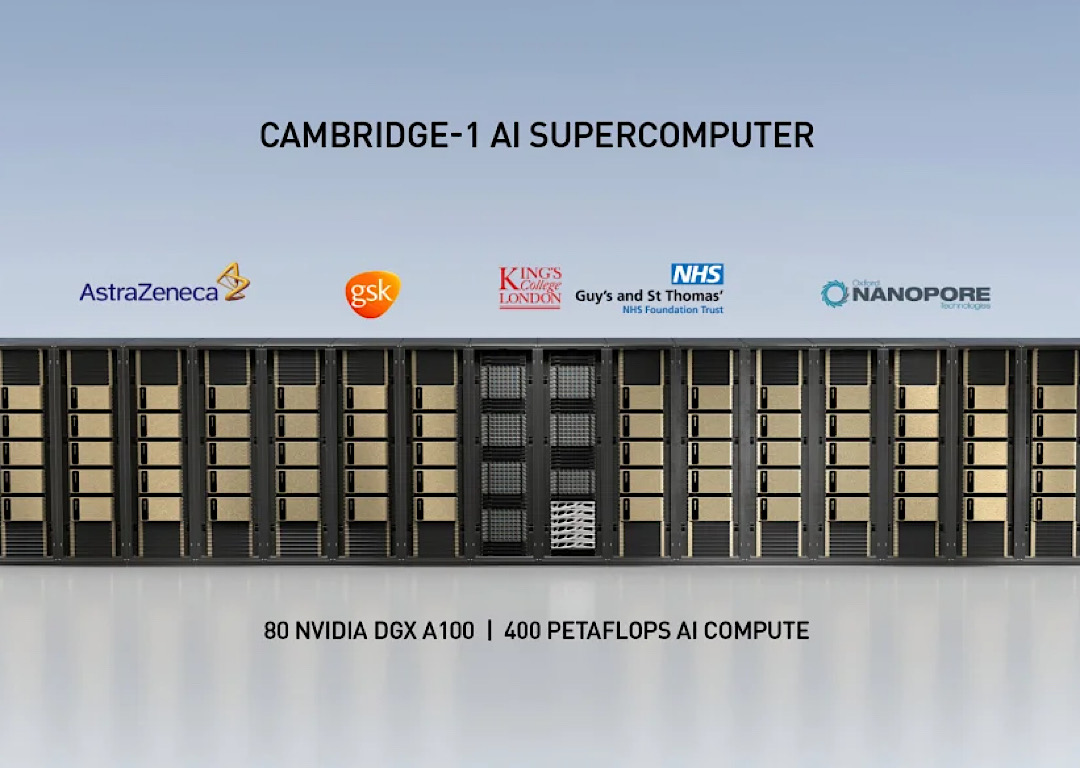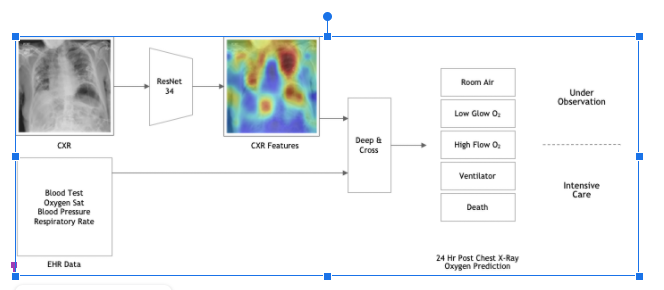At the GTC 2020 Conference, Nvidia promised to build a £40 million ($52 million) supercomputer in Cambridge, England. This came a month after it acquired ARM for $40bn. The supercomputer will be named Cambridge-1.
Cambridge-1 will be mainly used for artificial intelligence research in health care. The computer will be launched by the end of this year.
CEO Jensen Huang said: “Tackling the world’s most pressing challenges in healthcare requires massively powerful computing resources to harness the capabilities of AI.” The supercomputer, Cambridge-1, will act as a center of innovation for the UK, enhancing Britain’s researcher’s groundbreaking work in the field of critical healthcare and drug discovery.
The supercomputer will use 80 Nvidia DGX A100 systems to provide 400 petaflops of ‘AI compute,’ or eight petaflops of standard Linpack performance. Due to this, Cambridge-1 will be most likely to be ranked 29th among the top500 list of the world’s most powerful supercomputers and among the top 3 most-energy-efficient machines in the Green 500.
At the moment, seven petaflops (Linpack) Cray XC40 is the most powerful supercomputer in the UK, used by the Meteorological Office, built in 2014 for £97m ($126m). At the beginning of this year, the office said that it plans to spend £1.2 billion (US$1.56bn) on a more powerful system, but the upgrades will be expected in 2028 as the work won’t commence until 2022.

As per Nvidia, they will offer their new supercomputer to researchers at GSK, AstraZeneca, Guy’s and St Thomas’ NHS (National Health Service) Foundation Trust, King’s College London, and Oxford Nanopore. Nvidia said that this non-commercial project would help them to secure UK regulatory approval for the ARM acquisition.
The supercomputer will serve as the NVIDIA SuperPODs and it will make sure that healthcare researchers use their platform. Matt Hancock, Britain’s health minister, said that it would help the UK’s best talent to do life-saving research.
Via Techpowerup





